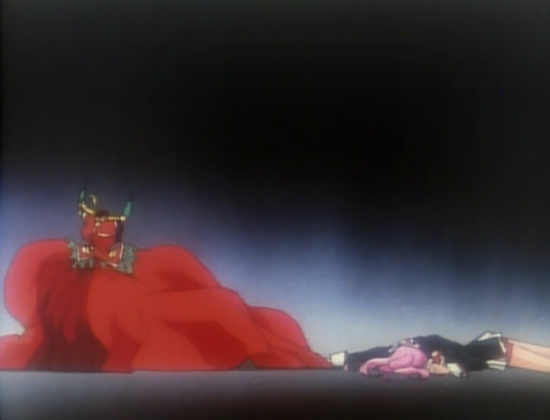utena is no prince

Because The Prince isn't real, and Utena is.
Utena was no prince; she played the part of one— at a cost— but the thesis of Utena first and foremost examines/exposes the illusion of The Prince, and thereby, the inverse subordinate-role of The Princess: how socially constructed, enforced, and systemically naturalized gender [(=)roles] presented through fairytale archetypes cannot be divorced from gender subjectification under the patriarchy.
I consider Revolutionary Girl Utena to be a work of feminist deconstruction in how it interrogates/challenges the naturalized (i.e. gender structures ⇄ heterosexual difference) and exposes them as illusory, maintained in place and perpetuated through a literalized regime, facilitated through The Family. Fairytale archetypes vehiculate this deconstructive exposition really well. The roles of The Prince and The Princess are never actively taken upon but rather imposed onto all patriarchal subjects; men, despite being patriarchal subjects, also actively maintain and perpetuate cishetero social relations of control through and under the patriarchy, so their Princehood and its positional benefits are negotiated through a system that keeps The Princess caged in the confines of her relation (of subordination) to princehood in one way or another: The Princess is The Prince's sister, or wife, or daughter, or all three. [Note here the structural maintenance & reproduction role of The Family, literalized in Utena and evident in our Real World through incestuous abuse.] The Prince-Princess (familial) relation/dynamic then operates on an absence of The Princess' autonomy— The Prince "saves" The Princess, puts her pretty in a birdcage (see: Anthy's greenhouse), puts her soul to forcible rest in the vastness of coffinlike castle grounds (see: Ohtori), and keeps her from saving herself.
The Prince in Utena is not the idealized masculine it is commonly understood and taken to be: Princehood in practice is that of dominating The Princess; maintenance of the role-position of control of The Prince is maintenance of the role-position of subordination of The Princess, and is antithetical to the show's ethos of lesbian (self-)liberation from the structures of heteropatriarchy. Utena was not revolutionary for "being a Prince despite being a Girl" - Utena was revolutionary because she ended up refusing to exist as a Princess (perhaps a topic for a future essay: Kanae was Utena if she continued to be groomed into the heterosexual subordinate-position of the Princess, a duelist who may have loved Anthy now reduced to Akio's forgotten child bride) and was not a Prince (a constructed, misogynistic ideal); the revolutionary act she did to allow Anthy to save herself was simply the love and care she had for her beyond princely notions of nobility.
The Prince isn't real, and has never been. Utena is real, and will continue to be, especially in a Self liberated from the structures of Ohtori— and that, to me, is hope.